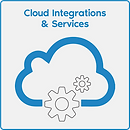Use cases
Microcontainers
ZAYA microcontainers are containers for resource-constraint small & MMU-less microcontrollers and an innovative way to make a product development modular, secure, user-friendly, deployment friendly in the IoT Edge devices, and these solutions can be applied for different use cases.
User Application

ZAYA microcontainers can be used to run any native end-user application in an authenticated, isolated and independent secure environment.
Microcontainers are platform-agnostic environment, and they don't need Hardware, platform and OS initialisation; therefore, a user application running in a microcontainer just includes the native application code.

Virtual Machine
Microcontainers can be used like a Virtual-Machine that runs a Guest Operating System.
A existing RTOS application can be isolated and protected from a potential violation and malfunctioning.
Microcontainer Access Policy allows product developers to pick what resources to grant for the non-Secure RTOS. This approach also simplify the migrating from a non-secure RTOS to ZAYA's secure environment; an existing RTOS powered User Application (Guest) RTOS can be run in a Microcontainer with no-effort.

Cloud Integrations & Services

Microcontainers can be used to run cloud integrations, such AWS, Azure for remote device monitoring.
Cloud microcontainers run like a independent background services (Microservices), and end-user applications can use cloud microservices to interact with the cloud.
Cloud microcontainers is protected by PSA Security Guidelines; cloud microservices do not have any sensitive data (keys) and operations (crypto operations), instead, it makes use of crypto and secure key storage from PSA Certified ZAYA Secure OS.
Intepreters & Alternative Programming Languages
Microcontainers can be used to run any programming language, such as scripting languages, e.g. Python, Rust for advance programming such as AI, Data Analysis.
An interpreter microcontainer can include its user application but also it can be used as a background service (microservice) to run scripts from other microcontainers; like running(remote) lambda functions.
It offers secure programming; a system can be isolated and protected from a potential
malfunctioning by any code implemented in any language. Microcontainer access policy allows
alternative programming language developers what resources to grant for microcontainer.

Machine Learning

Microcontainers can be used as independent environment to run Machine Learning(ML) Models.
An ML Model can be encapsulated in a Microcontainer and can be deployed to the field independently. It resolves the ML Update Limitations for resource constraint devices; update
a ML Model with any size.
ML Model microcontainers can securely interact with Interpreter Microcontainers to used script languages.
Middleware
Microcontainers can be used run independent middleware's as background services like a
microservice.
The developer can create individual middleware services like, crypto, file system, network.
Middleware microcontainers can be used to run any untrusted third-party library to protect the
system from a potential malfunctioning from the third-party.






